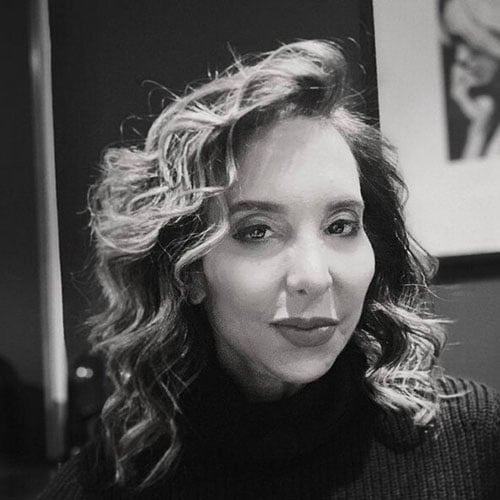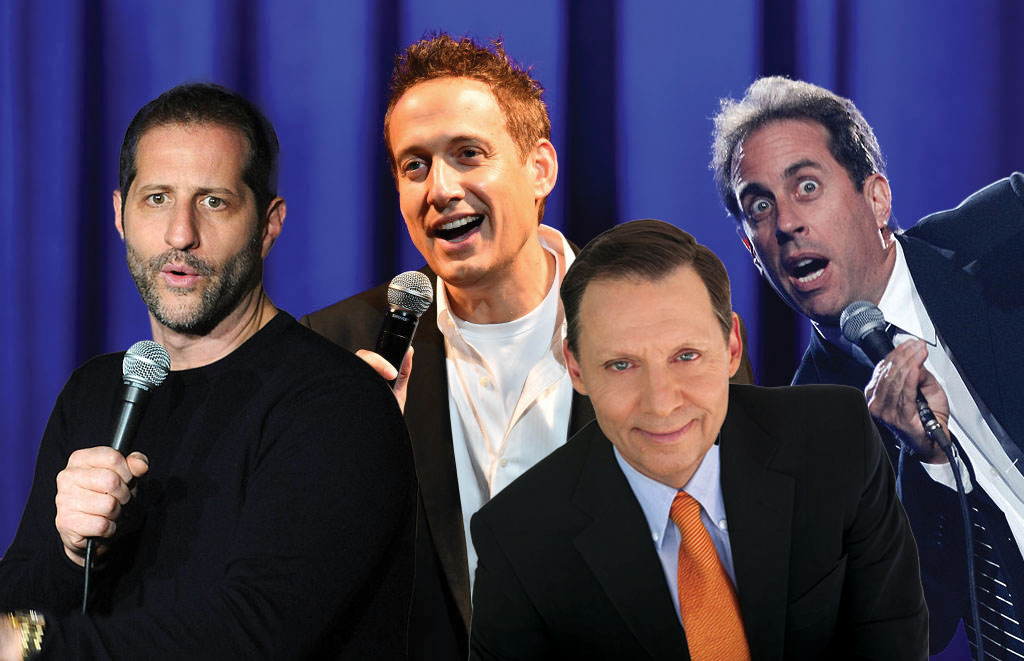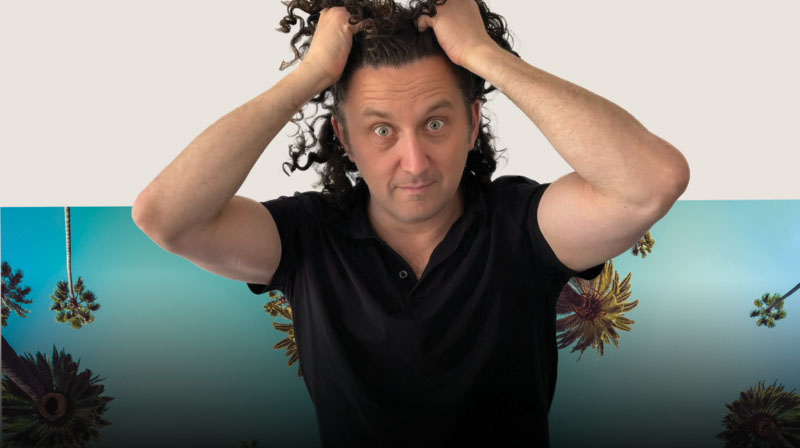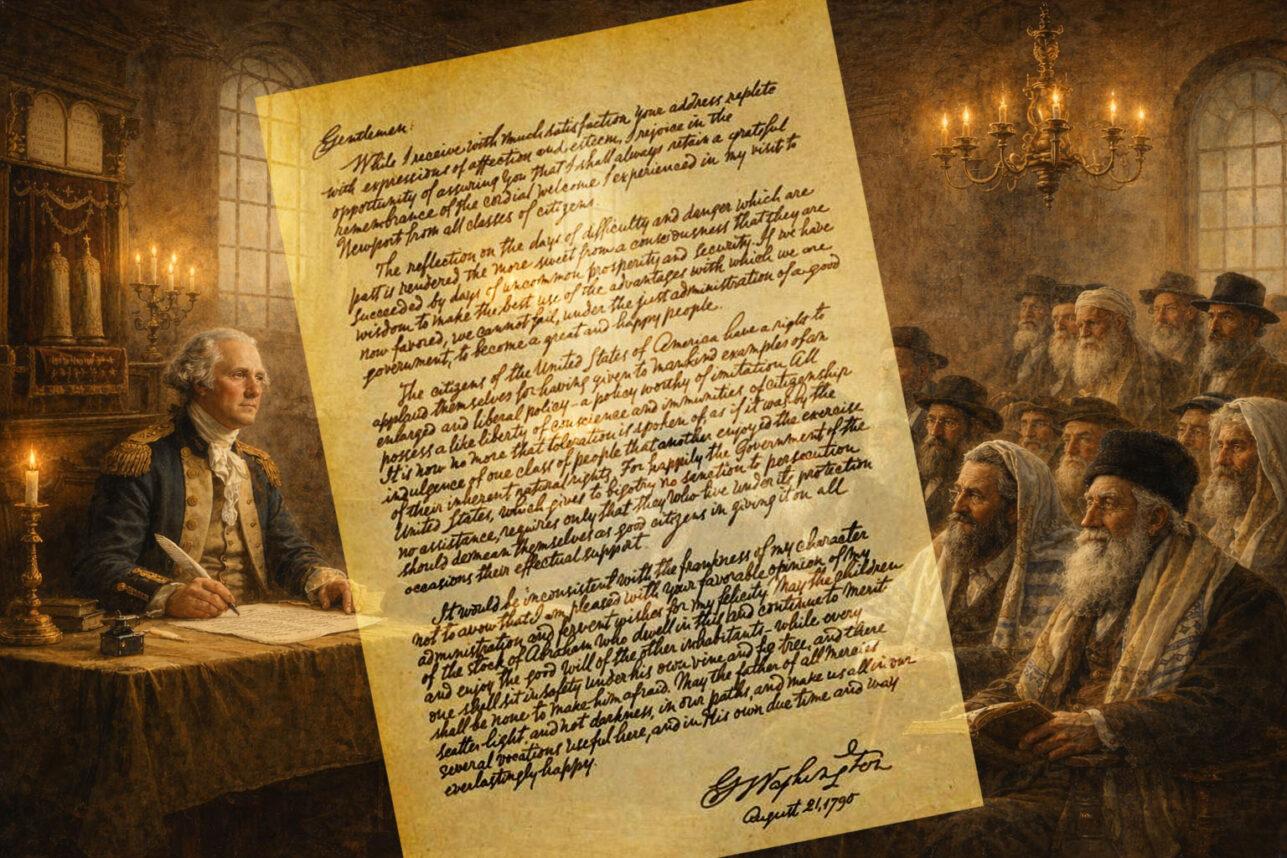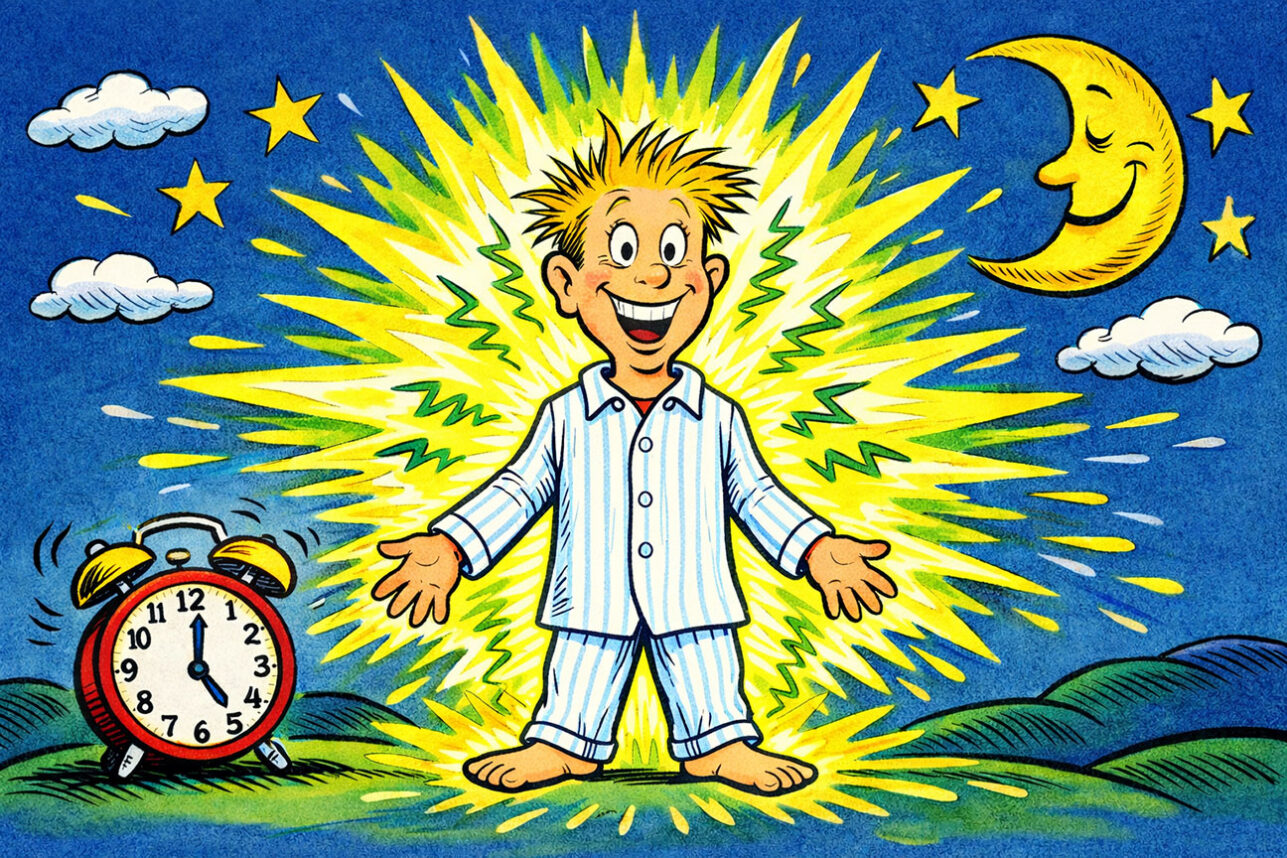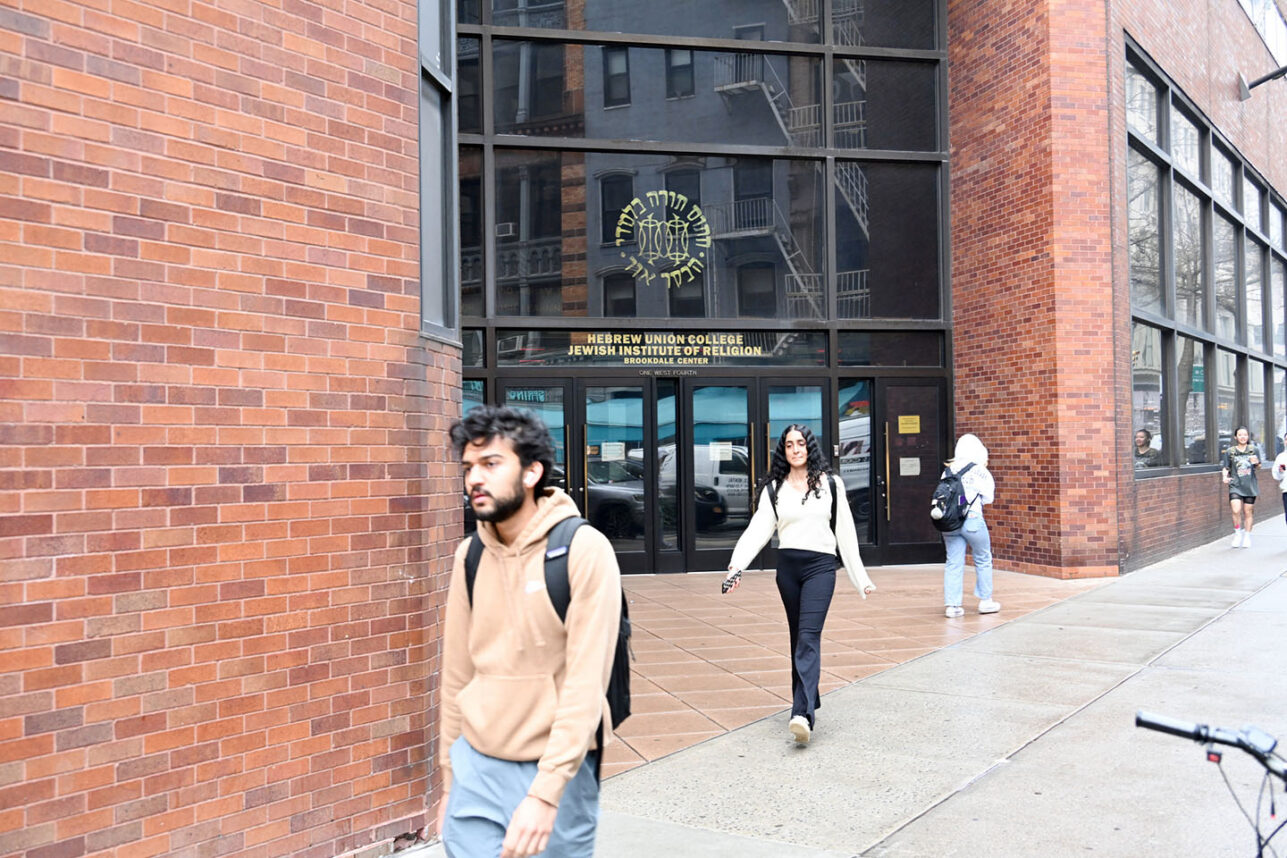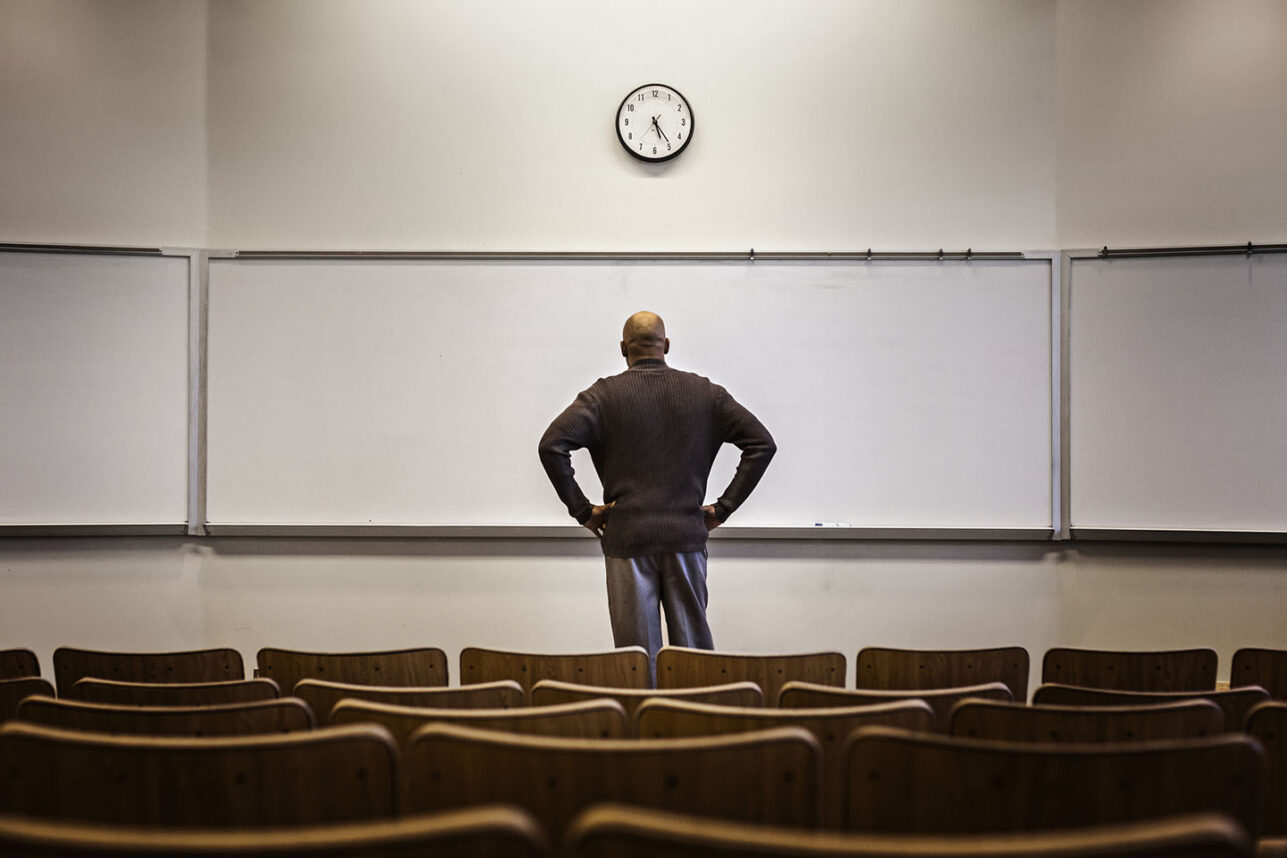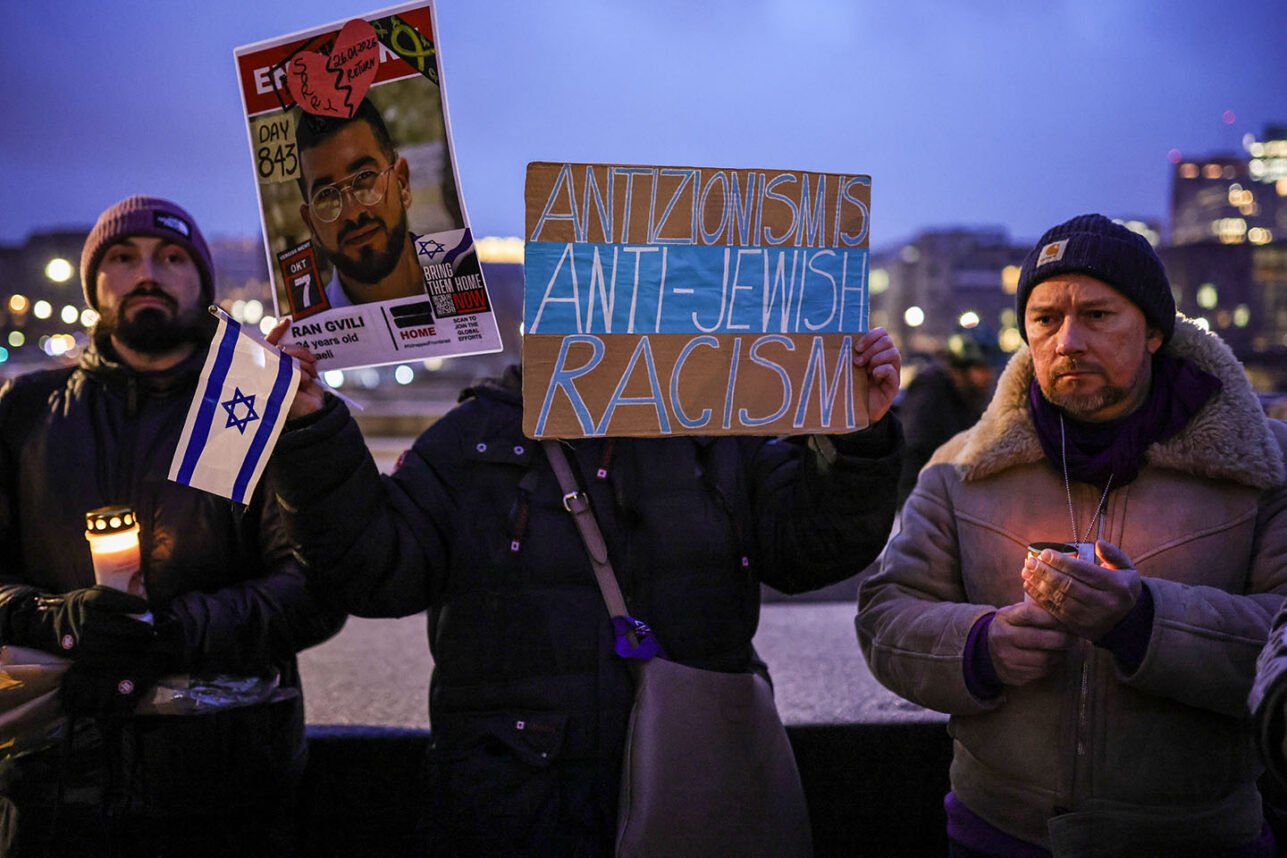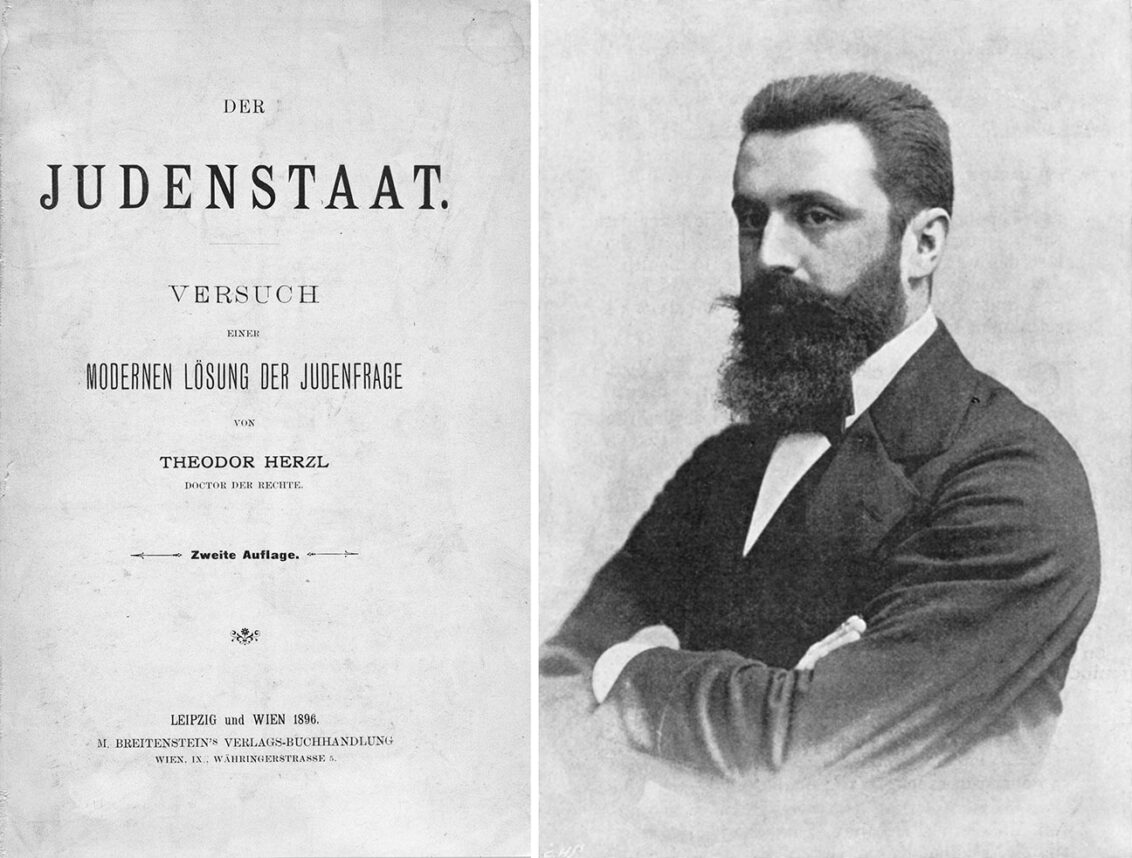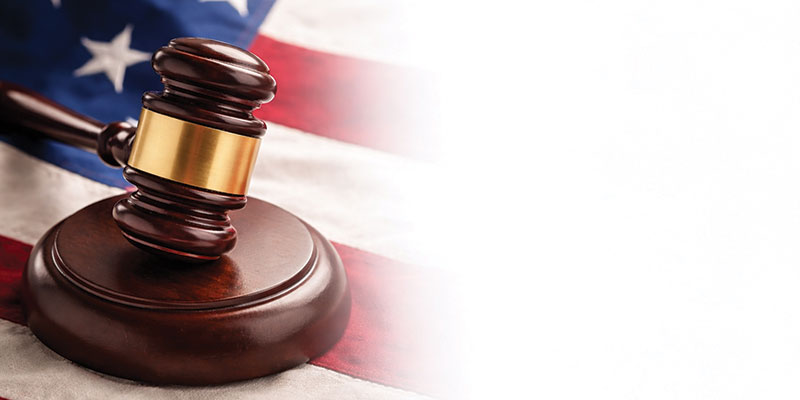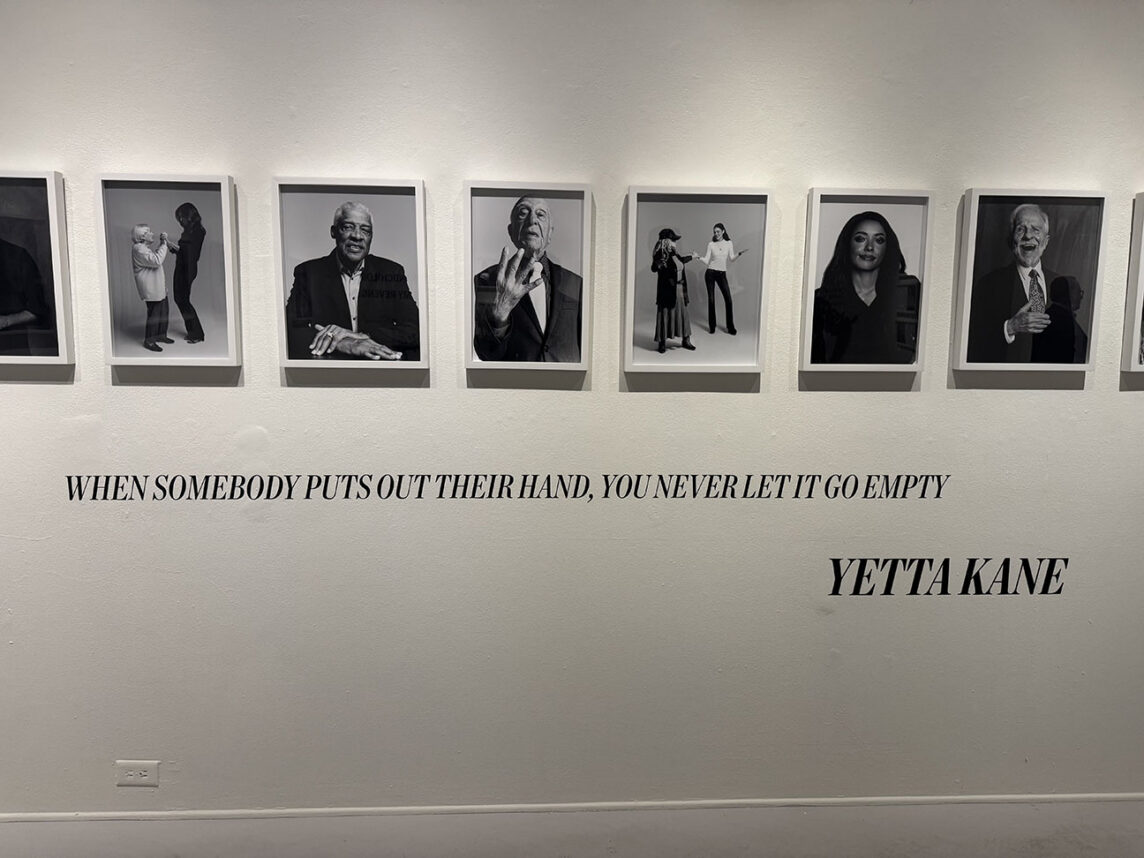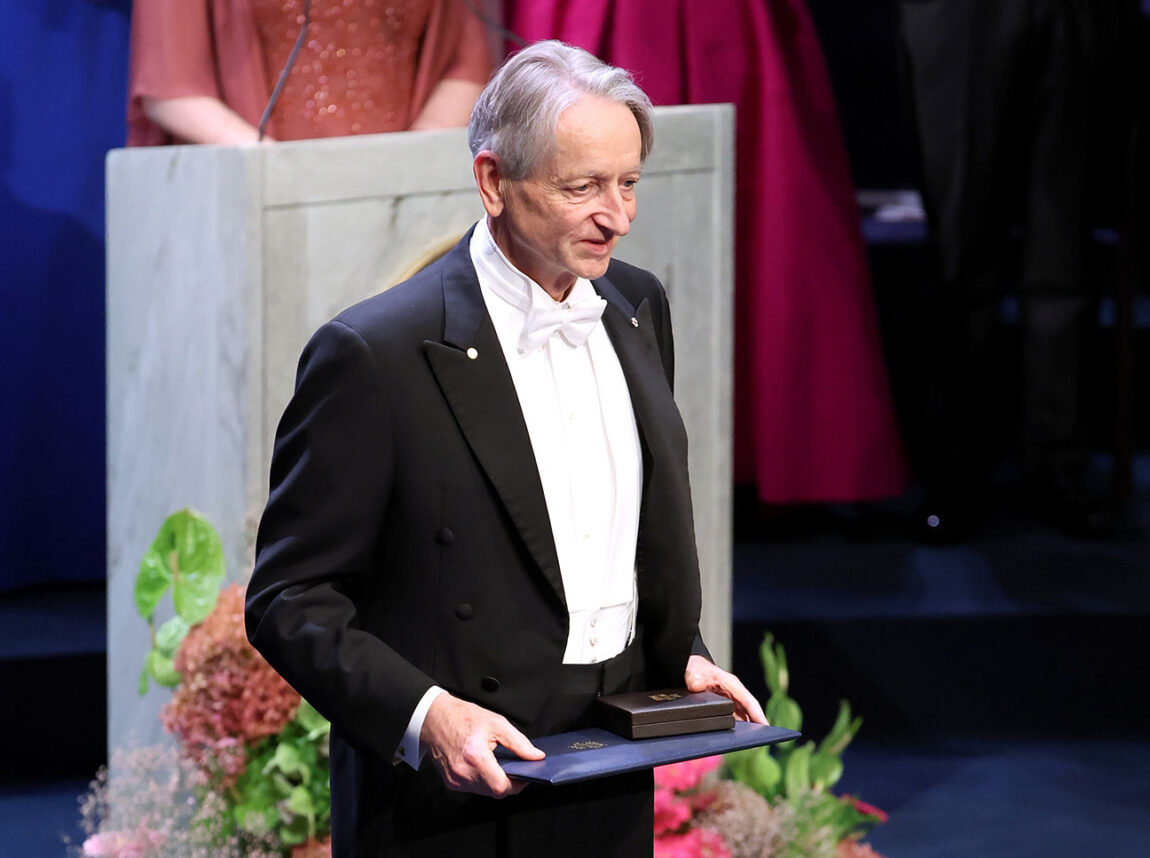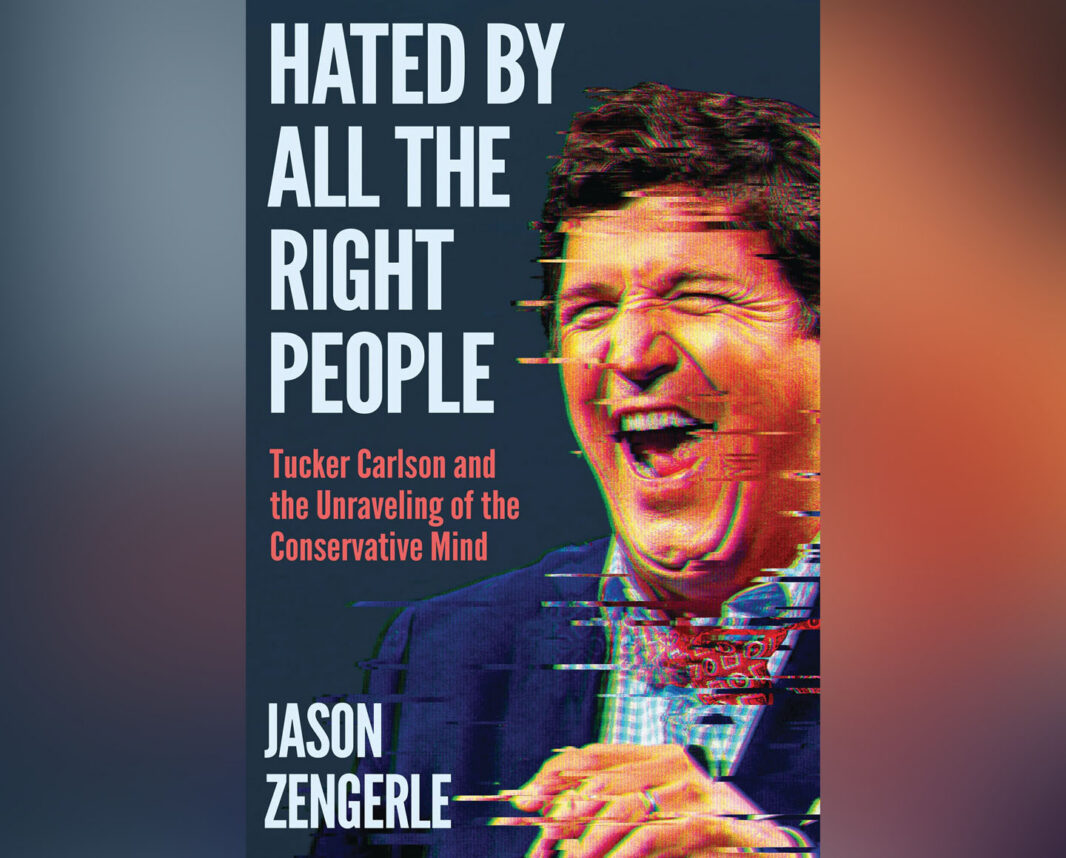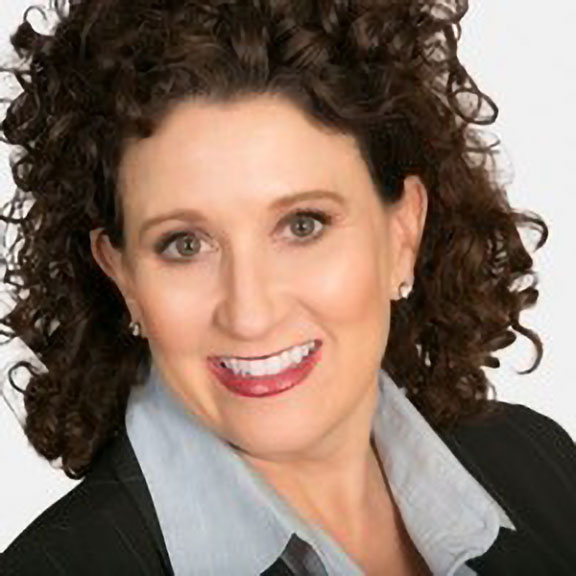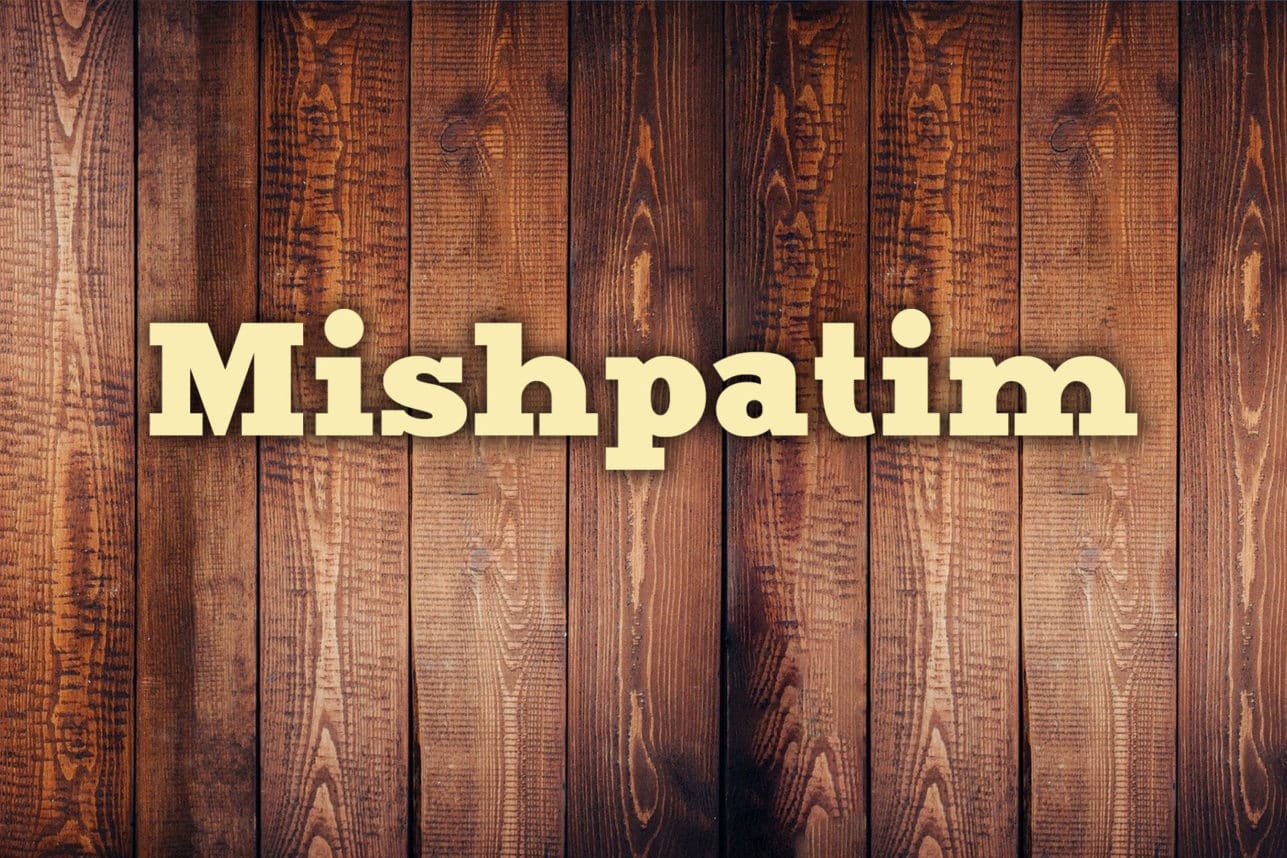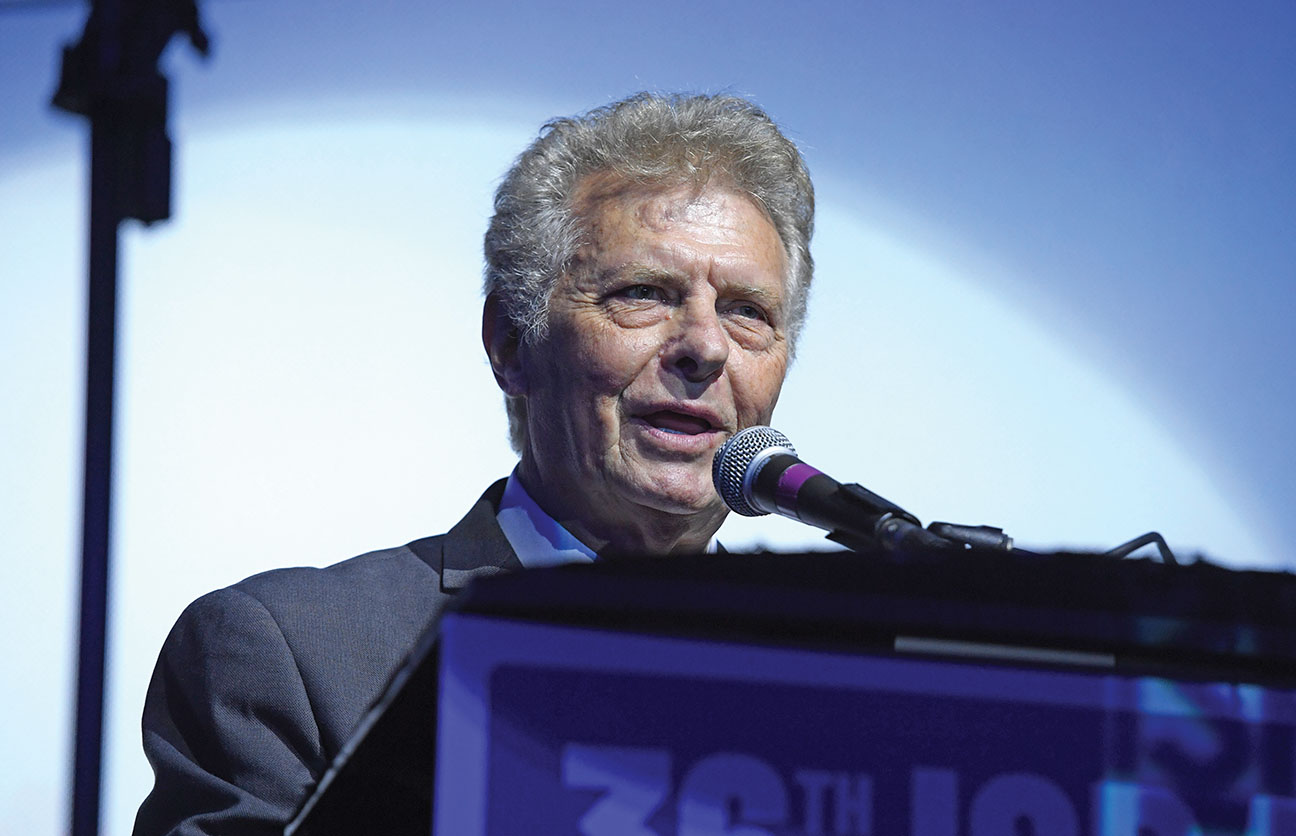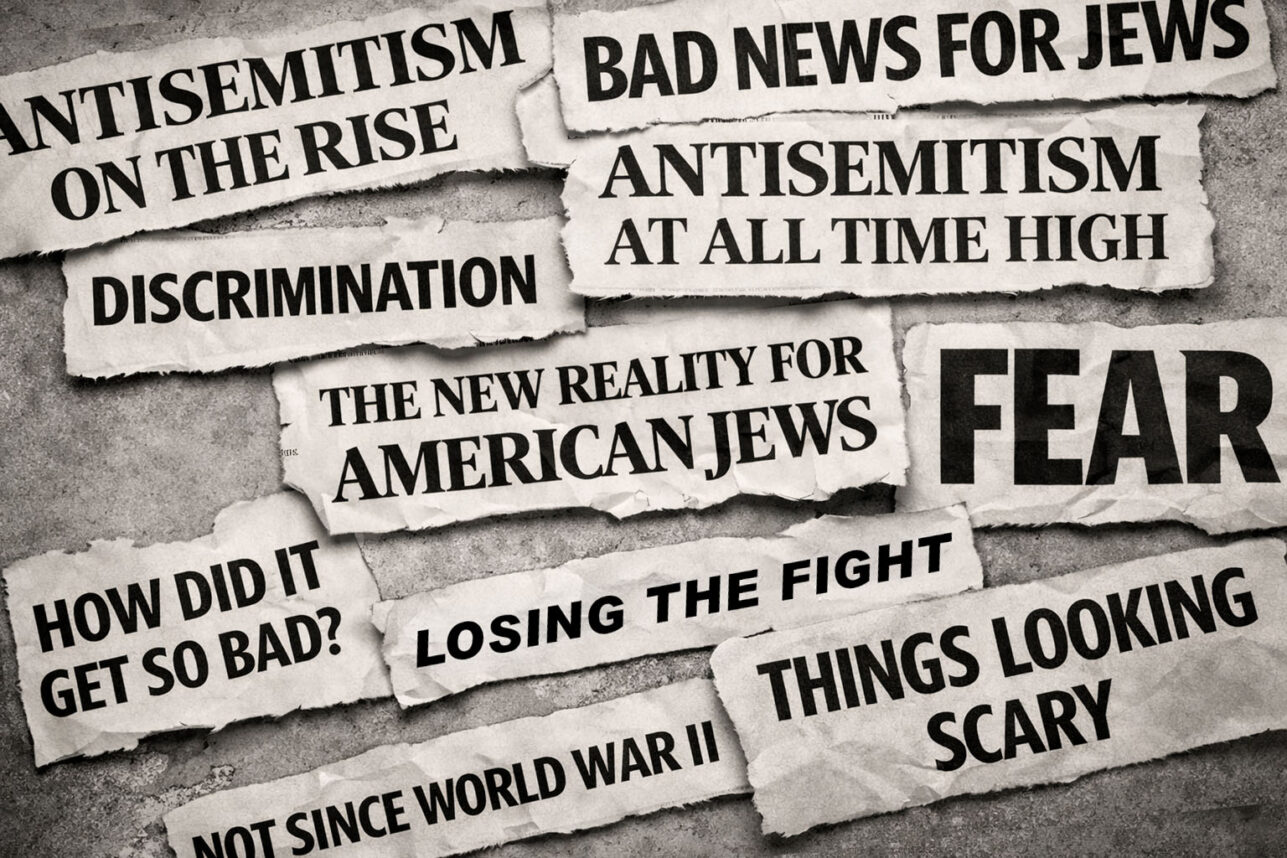
Five years ago, when librettist Ben Kaplan and composer Alex Weiser began discussing the idea of creating an opera about Theodor Herzl, “the palpable fear of anti-Semitism in the United States was a distant memory,” Kaplan wrote in his program notes. “Sadly, that is no longer the case,” he told me. “And that fear of physical threat, so deeply felt by Herzl at the time, is now increasingly felt by Jews today, here in New York and around the world.”
The opera they created, “State of the Jews,” recently premiered at the 14th Street Y. Not being a huge opera fan, I was curious about the subject matter-art form combination. But the answer was clear in the opening scene: The public shaming of Alfred Dreyfus, a Jewish French army captain falsely accused of treason in Paris, 1895. The tension builds as the chanting of the crowd intensifies. One side chants: “Jewish traitor! Death to Dreyfus!”
Herzl, covering the trial as a journalist, tries to process the gravity of the moment with the backdrop of rising nationalist movements and escalating pogroms. It’s a tense and dramatic scene, showing how opera can express an event’s hyper-emotionality.
The wild — savage — chants also felt uncomfortably too familiar: anti-Semitic protests on campuses, public shaming on social media, call-out culture in general.
In the late 1800s, Herzl prophetically saw a harsh yet hopeful reality for the Jewish people: It was time to go home. Yet Kaplan and Weiser, both of whom are directors at the New York-based YIVO Institute for Jewish Research, also wanted to explore the complex, imperfect human behind the figurehead. So the more intimate drama is the relationship between Herzl and his wife, Julie. Julie considered herself a proud Austrian and thought her husband’s political activism was destroying their lives. She didn’t even want him to publish his groundbreaking book that changed the course of history: “The Jewish State.”
Theodor Herzl prophetically saw a harsh yet hopeful reality for the Jewish people.
The story focuses on the final six months of his life when, knowing he’s sick, Herzl furiously travels to Russia, Rome and London to shore up support. Heated arguments ensue over Britain’s provisional offer to settle Jews who were in immediate danger in Uganda.
One of the most moving scenes is at the home of Ben Jacob in Verki, Russia. “He wrote a book that set our minds on fire,” Jacob proclaims, “a vision for the future. It spoke to our souls, made us feel brave. He built this movement, unparalleled in history, to bring us back to life, unite us all in dignity, after centuries of shame. Seven years ago, he lifted our heads high and honored us — showed us our redemption, the power of our ancient race.”
And then, young supporters from Vilna softly march in, singing “Hatikvah.”
A visibly moved Herzl responds: “I can tell you we are close. I have caught a glimpse of Zion.”
But the father of political Zionism was also an absentee father of his children and spent all of the family’s money on the political movement he ignited. It was sad to watch, but we’re now fairly used to the fact that many of our greatest leaders, artists and thinkers were also deeply flawed. “Prophets are not saints — they’re human,” Israeli writer Ruby Namdar said at a panel after the performance. “We don’t do saints in our culture.”
Sadder for me was how unhappy Herzl was when he died of a heart condition in 1904. He never saw the results of all his hard work; he thought it was all for nothing.
“The questions that plagued Herzl and his contemporaries are very much alive for us as Jews living in New York City today,” Weiser wrote in the program notes. “How much should our Jewishness define us? What is the best way to fight anti-Semitism? Where is the future of the Jewish people?”
Kaplan and Weiser now are working on mounting a full production of the opera, and the Herzl Center in Jerusalem is planning to bring it to Israel.
“Herzl haunts me not because he had all the solutions, but rather because he felt others’ plight, and tried with a characteristic boldness and brashness to ease it,” Kaplan wrote.
“And this haunting — it’s as if a spirit from history is whispering in our ears: Judge me if you want, but I did what I thought I could in my own time, now what will you do?”
Indeed.
Karen Lehrman Bloch is an author and cultural critic living in New York City.

